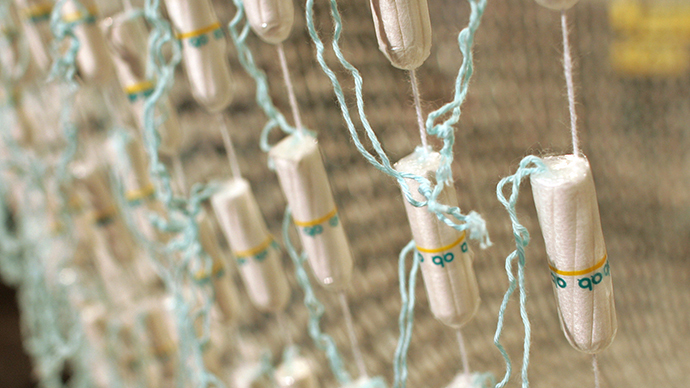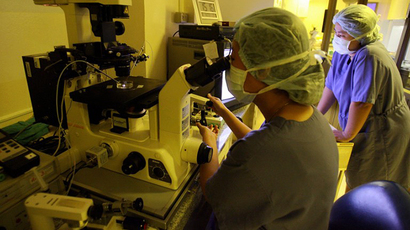Common feminine health products riddled with dangerous chemicals - report

Common feminine care products contain hazardous chemicals including carcinogens, endocrine disruptors and reproductive toxins that can cause cancer among other dangers, a new report shows.
Women’s Voices for the Earth (WVE) released Wednesday the report
Chem Fatale revealing feminine care products, a $3 billion
industry, are marred by toxins and void of crucial regulations,
putting the health of millions of women at risk.
The report finds that the products used on or in absorbent parts of the female body are sold with little or no data provided about the ingredients they contain.
“The chemicals used in these products are a real concern given the inevitable exposure to sensitive and absorptive vulvar and vaginal tissue,” said Dr. Ami Zota, a professor of occupational and environmental health at George Washington University, in a press release.
For instance, tampons and menstrual pads are regulated by the US Food & Drug Administration (FDA) as medical devices, thus are not required by law to disclose ingredients, making “it nearly impossible for consumers to avoid chemicals of concern found in these products.”
Feminine washes, wipes and sprays are defined as “cosmetics” and are required to be free of harmful substances that would harm users under normal conditions. Yet the FDA says it does not assess or preapprove products before they are marketed.
“Companies and individuals who manufacture or market cosmetics have a legal responsibility to ensure the safety of their products. Neither the law nor FDA regulations require specific tests to demonstrate the safety of individual products or ingredients. The law also does not require cosmetic companies to share their safety information with FDA.”
The FDA admits it also has no power to recall products. That is done by an industry-funded group the Cosmetics Ingredient Review (CIR). Though WVE says the panel rarely considers concerns with the products connected to exposure to “sensitive vulvar and vaginal tissue or their mucous membranes.”
Anti-itch creams and douches are over-the-counter drugs, but only the main ingredient of these products is regulated. For the rest of their ingredients, safety and compliance with regulations rests with the manufacturer.
Tampons and menstrual pads are used by 70 to 85 percent of women, the report states. Various brands of these products contain ingredients that expose women to pesticide residue, dioxins and furans, obscure fragrance chemicals and allergens. Subjection to these can lead to reproductive harm, endocrine disruption and cancer.
Products like feminine sprays or wipes, douches and anti-itch cream are used by 20 to 40 percent of women. A higher percentage of Black and Latina women use these products, which contain toxins like formaldehyde-releasing preservatives and parabens.
"We know that many of the most dangerous products that are found to cause chronic diseases also target women of color. The reality is knowledge isn’t enough—Latinas who already have health disparities, also face financial, economic, and geographic barriers to accessing safe alternatives,” said Cristina Aguilar, Interim Executive Director of Colorado Organization for Latina Opportunity and Reproductive Rights.
The report comes with list of products and their ingredients of concern. Top brands of these various products include CVS, Equate, Kirkland, Massengill, Summer's Eve, Vagisil, VH Essentials and Walgreens.














